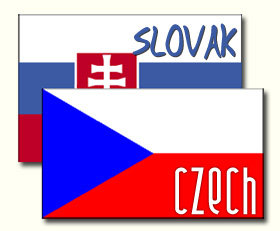Czechs, Slovaks mark 20 years since fall of communism
 Prague - Thousands marched Tuesday through the streets of Prague to mark two decades since the totalitarian communist regime collapsed in the country.
Prague - Thousands marched Tuesday through the streets of Prague to mark two decades since the totalitarian communist regime collapsed in the country.
They were reenacting a peaceful student protest that was crushed by riot police on November 17, 1989.
The crackdown kicked off Czechoslovakia's Velvet Revolution, a bloodless coup in the country that was then an island of hardline communism in Central Europe, despite the Berlin Wall's collapse a week earlier.
Magda Cepkova, 37, arrived from London, where she works as an intensive care doctor, to relive the protest that sparked the change. She recalled that she managed to escape with only a few bruises on her limbs, covering her head with her arms.
"There certainly is much to celebrate. Freedom that we acquired is priceless," she said. "The generation born after 1989 cannot understand. I live in London. I lived in New York and San Francisco. That would not have been possible back then."
Prague police estimated Tuesday's march at about 5,000 people.
Czechs and Slovaks were celebrating freedom modestly, amid stern reflections on what democracy has brought.
Both nations have since joined the North Atlantic Treaty Organization and the European Union and replaced their centrally planned, failing economies with functioning free-market systems.
However, they have also long sobered up from what many now see as naive expectations of the revolution days.
A survey by the Pew Research Centre, published on November 2, confirmed that a vast majority in both nations, which split in 1993, approve of the change to democracy.
But fewer Czechs and Slovaks - 45 per cent and 29 per cent, respectively - see their lives as better than before 1989, the opinion poll found.
Twenty years later, some observers say, Czechs find themselves at yet another crossroads. Some fear that a newly assertive Russia poses a threat to the region that emerged from the Soviet dominance in 1989.
"Central Europe's leave from history is over," said one of the revolution's student leaders, Vaclav Bartuska, who is the Czech Republic's energy envoy. "Russia wants once again a sphere of influence in Central Europe."
Others are frustrated by squabbling politicians and the anti- European politics of Czech President Vaclav Klaus, two decades after the country declared its wish to return to Europe.
"Back then we were a model of something good, successful and beautiful," screenwriter Jiri Krizan, a dissident leader in 1989, said at a recent press conference. "Today it is somewhat different."
Angry whistles drowned supporters' chants when the eurosceptic president laid a wreath in the arcade in downtown Prague where riot police bludgeoned students two decades earlier.
"It is a victory that it is possible to shout at the president ... and police is not intervening with truncheons," Klaus told Czech Television.
His predecessor Vaclav Havel, the revolution's iconic leader, opened an outdoor concert on the avenue where police cracked down on the student march in 1989. He introduced folk singer Joan Baez who sang We Shall Overcome to the festive crowd.
Earlier Tuesday, Havel paid a tribute to the communist regime's opponents, who have been largely sidetracked 20 years after democracy was restored.
During his speech in the Senate, he read dozens of names of Czechoslovak dissidents, including his late wife Olga Havlova, to remind his compatriots of their heroism and sacrifices.
At the same time, the Czech Republic's unreformed Communist Party still has an influence on Czech politics.
Its lawmakers currently occupy about one-eighth of seats in Parliament, making it difficult for the remaining parties to form stable governments, political scientists have said. As a result the country has often plunged into political crisis in recent years.
One such weak cabinet embarrassingly fell in March, halfway through the country's six-month term at the helm of the European Union.
Marketa Moravcova, 41, who pushed a pram with her toddler son in the reenacted march through Prague, is among those who now view the Velvet Revolution as too velvety. She complained that few perpetrators were punished for crimes during the communist era.
"We were too gracious to some people. They should have been tried," said Moravcova, who was studying economics in 1989.
In Slovakia, celebrations have been clouded by discord. The Velvet Revolution leaders refused to attend official commemorations.
Prime Minister Robert Fico's decision to visit Moscow on November 16, a day before the anniversary, fueled their decision as well as his defence of the communist regime as not all that bad. (dpa)